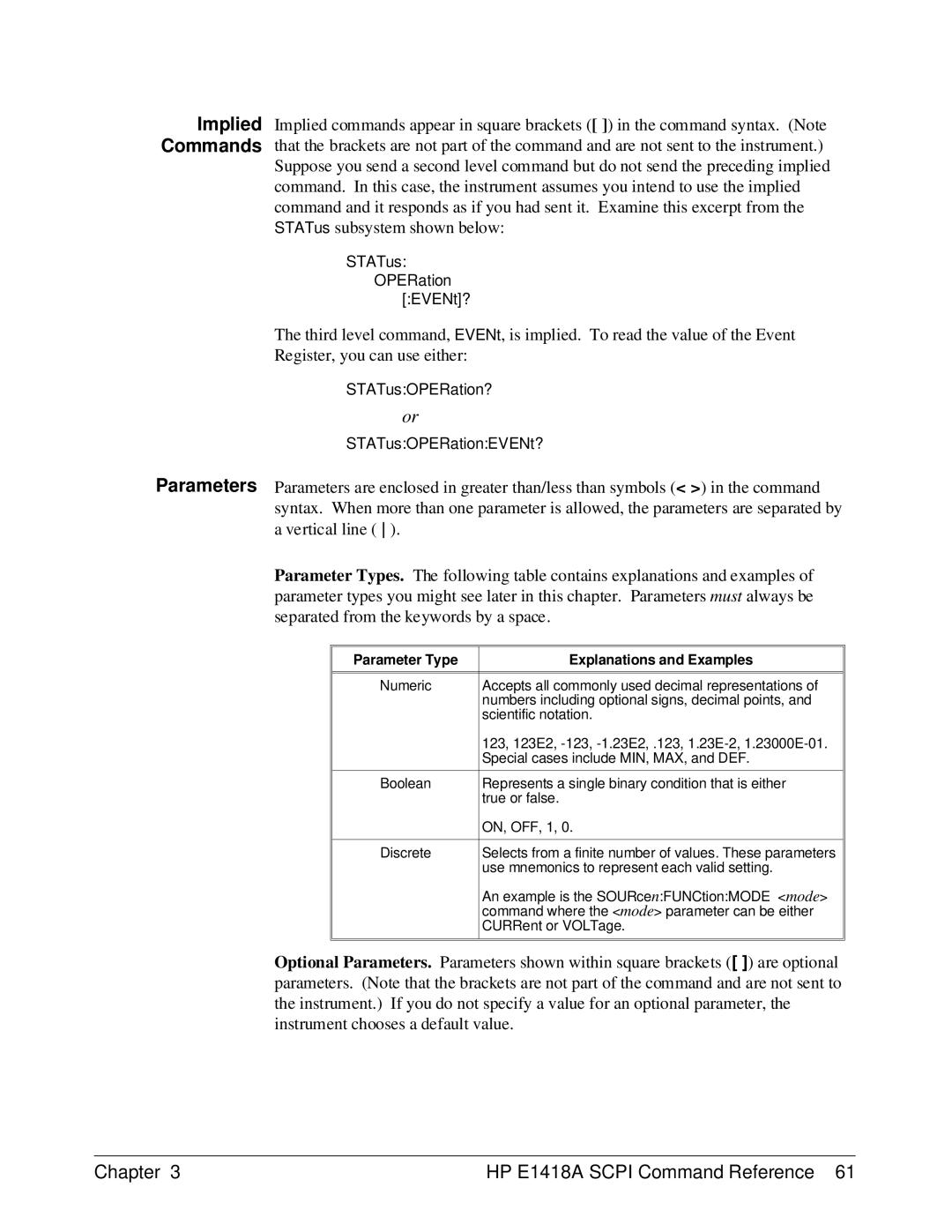Implied Implied commands appear in square brackets ([ ]) in the command syntax. (Note Commands that the brackets are not part of the command and are not sent to the instrument.)
Suppose you send a second level command but do not send the preceding implied command. In this case, the instrument assumes you intend to use the implied command and it responds as if you had sent it. Examine this excerpt from the STATus subsystem shown below:
STATus:
OPERation
[:EVENt]?
The third level command, EVENt, is implied. To read the value of the Event Register, you can use either:
STATus:OPERation?
or
STATus:OPERation:EVENt?
Parameters Parameters are enclosed in greater than/less than symbols (< >) in the command syntax. When more than one parameter is allowed, the parameters are separated by a vertical line ( ).
Parameter Types. The following table contains explanations and examples of parameter types you might see later in this chapter. Parameters must always be separated from the keywords by a space.
Parameter Type | Explanations and Examples |
|
|
|
|
Numeric | Accepts all commonly used decimal representations of |
| numbers including optional signs, decimal points, and |
| scientific notation. |
| 123, 123E2, |
| Special cases include MIN, MAX, and DEF. |
|
|
Boolean | Represents a single binary condition that is either |
| true or false. |
| ON, OFF, 1, 0. |
|
|
Discrete | Selects from a finite number of values. These parameters |
| use mnemonics to represent each valid setting. |
| An example is the SOURcen:FUNCtion:MODE <mode> |
| command where the <mode> parameter can be either |
| CURRent or VOLTage. |
|
|
|
|
Optional Parameters. Parameters shown within square brackets ([ ]) are optional parameters. (Note that the brackets are not part of the command and are not sent to the instrument.) If you do not specify a value for an optional parameter, the instrument chooses a default value.
Chapter 3 | HP E1418A SCPI Command Reference 61 |
